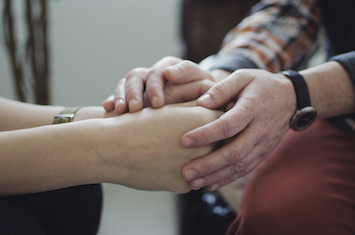August 30, 2018
By Felishia McPherson
 I began my journey as a peer support specialist accidentally. I was actually supporting my peers long before I knew there was a title, specialized trainings, career opportunities or a structured way to use my lived experience as a “tool” to assist others on their mental health journey.
I began my journey as a peer support specialist accidentally. I was actually supporting my peers long before I knew there was a title, specialized trainings, career opportunities or a structured way to use my lived experience as a “tool” to assist others on their mental health journey.
From 1995-2006, I was a “temporary resident” of the North Carolina Correctional Institution for Women. While there, I received my first clinical diagnostic assessment and the opportunity to participate in individual and group psychological sessions. At the time, I was a scared young lady who had lost all hope and desire to live. I couldn’t see any form of “normalcy” in my future. How could I have—after receiving a 35-year sentence only months after turning 25 years old?
I thought I was “normal” for a little black girl born and raised in the South. I never drank, smoked or did drugs. But I was suffering from mental illness, anger issues, self-esteem issues related to being raped and molested in my youth, abandonment issues and so much more. And while I was a well-educated, Bible-toting, tax-paying member of society, I had no idea how a lack of coping skills and support can lead to an infinite amount of self-destructive behaviors and decisions.
Upon entering the penal system as a “long-term/violent offender,” a psychological assessment was mandatory. Not only was I unfamiliar with this process, I had no idea that the questions were being used for a possible mental health diagnosis.
With time, however, I welcomed the opportunity to speak with a professional therapist. I was so scared, ashamed, self-loathing, angry, suicidal, hopeless and tired of pretending that everything was okay. I wanted my inner turmoil to end, one way or another. Attending group treatment, learning that I was “not the only one” and having peer support even while incarcerated gave me hope. I felt less isolated and alone while starting my journey of wellness.
I learned that my mind, body and spirit needed to be addressed in a positive manner; that I had the power, time and privilege of taking care of me; that I was not my mistakes, fears, failures or any of the awful experiences I had thus far. I now had the opportunity to learn who I was, versus who I was trying to be. I had a lot of work to do and, thankfully, God had given me a place safe from abuse to focus on the plethora of issues that plagued me, as well as the help of a professional therapist and peers.
Once I had years of individual therapy and countless open-ended group work under my belt, I was asked to continue attending multiple groups to assist with the “younger, rougher, less cooperative” ladies that had flooded the unit. These ladies were said to have “attitudes” and were challenging the therapists because “they couldn’t relate.”
I thought I was filling the role of liaison/group security, not knowing I was actually serving as a peer—one who could relate to the new ladies; who had successfully maneuvered through the “dark days” and challenges they were now facing; who had felt the despair of suicidal ideation, anger, fear, confusion, self-hatred, hatred of everybody including God; who was willing to talk out loud and honestly any time, day or night. One who understood “normalcy” no longer existed and never would.
I felt honored to be a peer. It gave me a sense of purpose and responsibility to myself and to those that often came to me seeking support (especially as our current circumstances were not conducive to hope, healing, personal growth, happiness or self-love). Upon my release, I was referred to a job as a peer support specialist. I was ecstatic to learn that the mental health recovery I sought for myself and others during my incarceration was exactly what made me qualified for the position.
Peer support has been the foundation of my success as a returning citizen, not just as a career, but as a means of communicating, connecting and empowering others. I truly believe peer support saved my life. All my negative feelings constantly threatened to overcome me, but learning I was not the only one having dark days allowed me to share and rely on others for support.
We all have or will struggle at some point in life, and we all can find strength in the support of others with lived experience. We can all find strength in our peers.
Felishia McPherson has served as a Crisis Intervention Team guest panelist for NAMI In Our Own Voice. She is a NAMI NC-Cumberland/Harnett/Lee member, a NC Peer Counsel member, CIT Coordinator, previously elected Executive Board Secretary, previous Executive Board VP and a newly elected NAMI NC Executive Board member. Felishia continues to use her lived experience, professional and clinical skills as a NC Licensed Professional Counselor and NC Certified Peer Support Specialists to advocate, educate and empower the individuals and family members we serve daily.
Submit To The NAMI Blog
We’re always accepting submissions to the NAMI Blog! We feature the latest research, stories of recovery, ways to end stigma and strategies for living well with mental illness. Most importantly: We feature your voices.
LEARN MORE